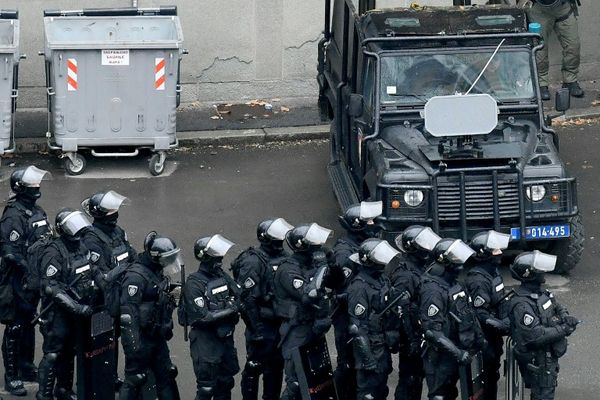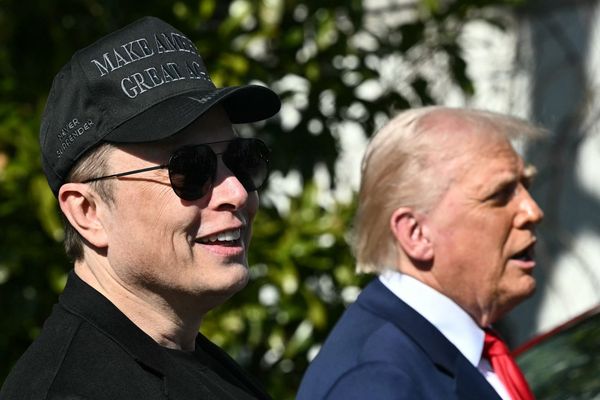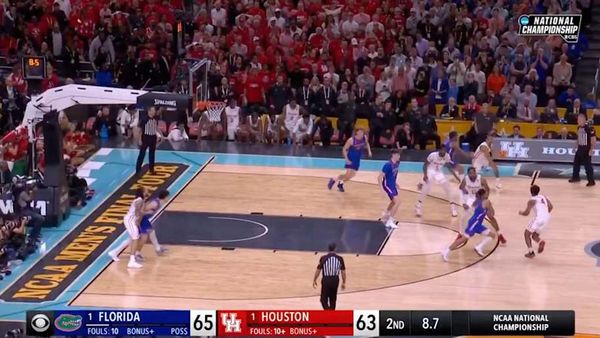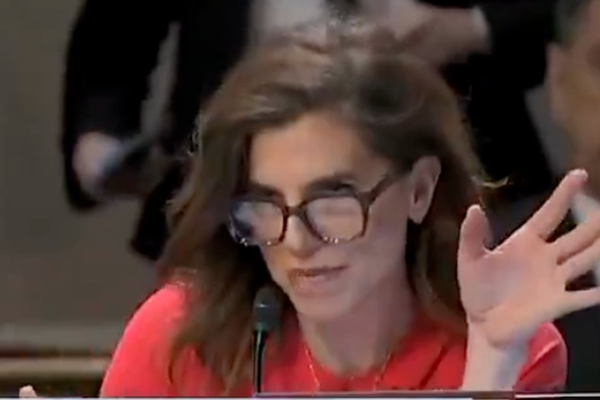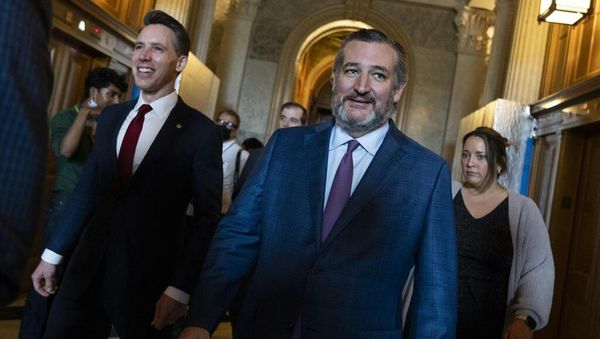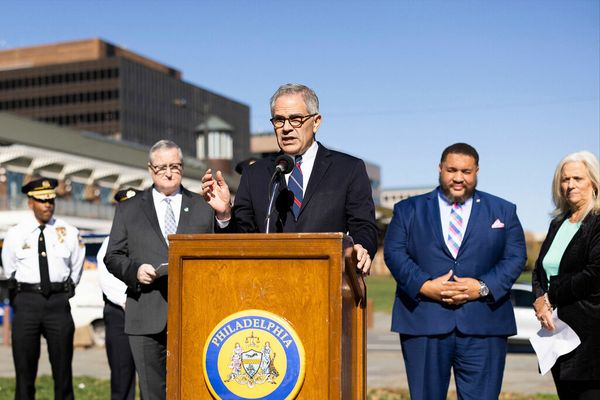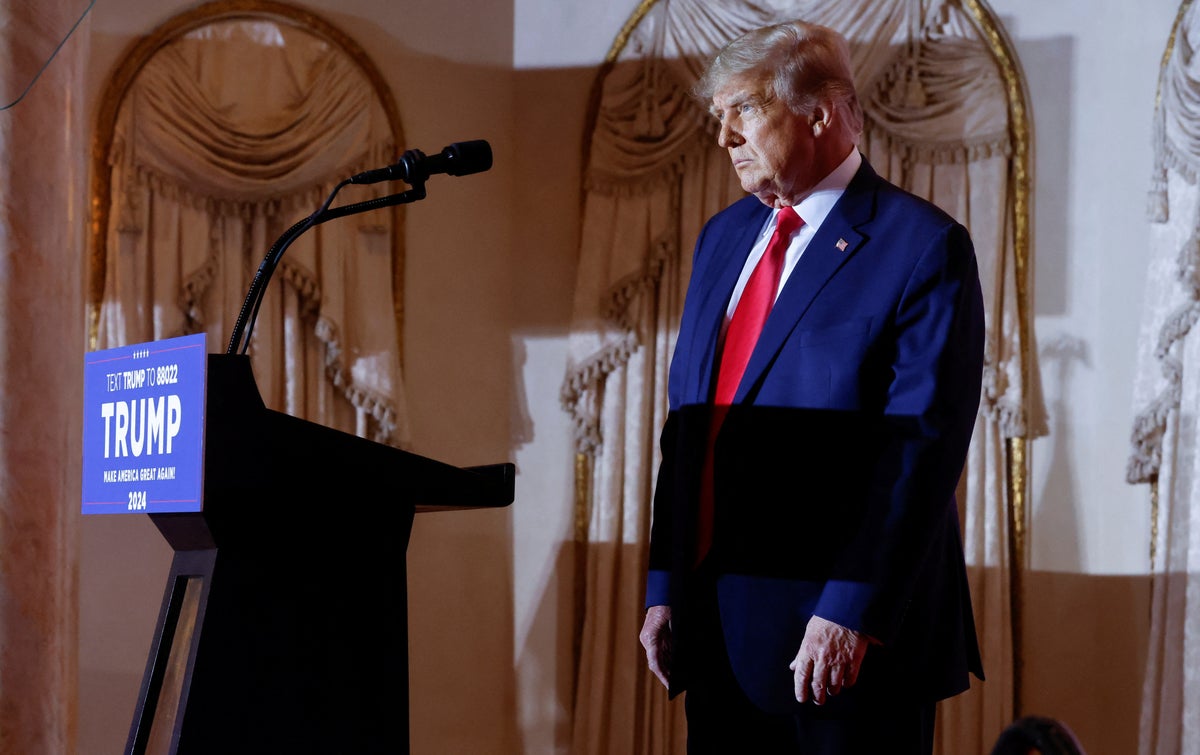
With Donald Trump’s return to the campaign trail this week came the resurgence of another familiar theme as well: racist language designed to denigrate Asian-Americans.
Mr Trump formally entered the 2024 race on Tuesday, ending months of will-he-won’t-he speculation and giving us the first real preview of a rematch between himself and President Joe Biden.
But before entering the race officially the ex-president spent weeks, if not months, teasing his eventual campaign launch and doing what he does best: attacking his rivals on the political stage. And it is in that arena where Mr Trump has leaned into the hateful, racist rhetoric which he previously displayed throughout 2020.
The president’s choice of targets was bizarre, to say the least. In early October he first resumed his efforts to politically tar Senate Minority Leader Mitch McConnell, his erstwhile GOP rival. To that end, he released one of his most vicious statements about a political opponent yet and used a racist, degrading nickname to insult Mr McConnell’s wife Elaine Chao while insisting that her husband had a “death wish”.
“Is McConnell approving all of these Trillions of Dollars worth of Democrat sponsored Bills, without even the slightest bit of negotiation, because he hates Donald J. Trump, and he knows I am strongly opposed to them, or is he doing it because he believes in the Fake and Highly Destructive Green New Deal, and is willing to take the Country down with him?” Mr Trump wrote on Truth Social. “In any event, either reason is unacceptable. He has a DEATH WISH. Must immediately seek help and advise from his China loving wife, Coco Chow!”
The lack of understanding of political history necessary to accuse a Taiwanese immigrant of being “China-loving” aside, Mr Trump’s deliberate misspelling of Ms Chao’s family name is not the first time he’s hurled racist abuse at his former secretary of Transportation, only the latest.
(Ms Chao resigned from the Trump administration in the hours immediately following the January 6 attack, as did many others who like her are viewed as disloyal by the former president. Her husband has also publicly blamed the quality of candidates selected by Mr Trump for key Senate races for the GOP’s unfavourable showing in those contests, further infuriating him.)
But he wasn’t done there.
Following a dismal performance by his hand-selected candidates in last week’s midterms, Mr Trump once again took to his social media platform to bash rivals in the GOP who had blamed him and the Maga movement for their party’s failings. One of those rivals targeted by the former president was Glenn Youngkin, the new governor of Virginia who became a rising star in the party after defeating Terry McAuliffe in a highly-watched race last year. Quipping that Mr Youngkin’s name “sounds Chinese, doesn’t it?”, the ex-president insisted that the Virginia governor “couldn’t have won without me”.
He wrote: “Young Kin (now that's an interesting take. Sounds Chinese, doesn't it?) in Virginia couldn't have won without me. I Endorsed him, did a very big Trump Rally for him telephonically, got MAGA to Vote for him - or he couldn't have come close to winning. But he knows that, and admits it. Besides, having a hard time with the Dems in Virginia - But he'll get it done!"
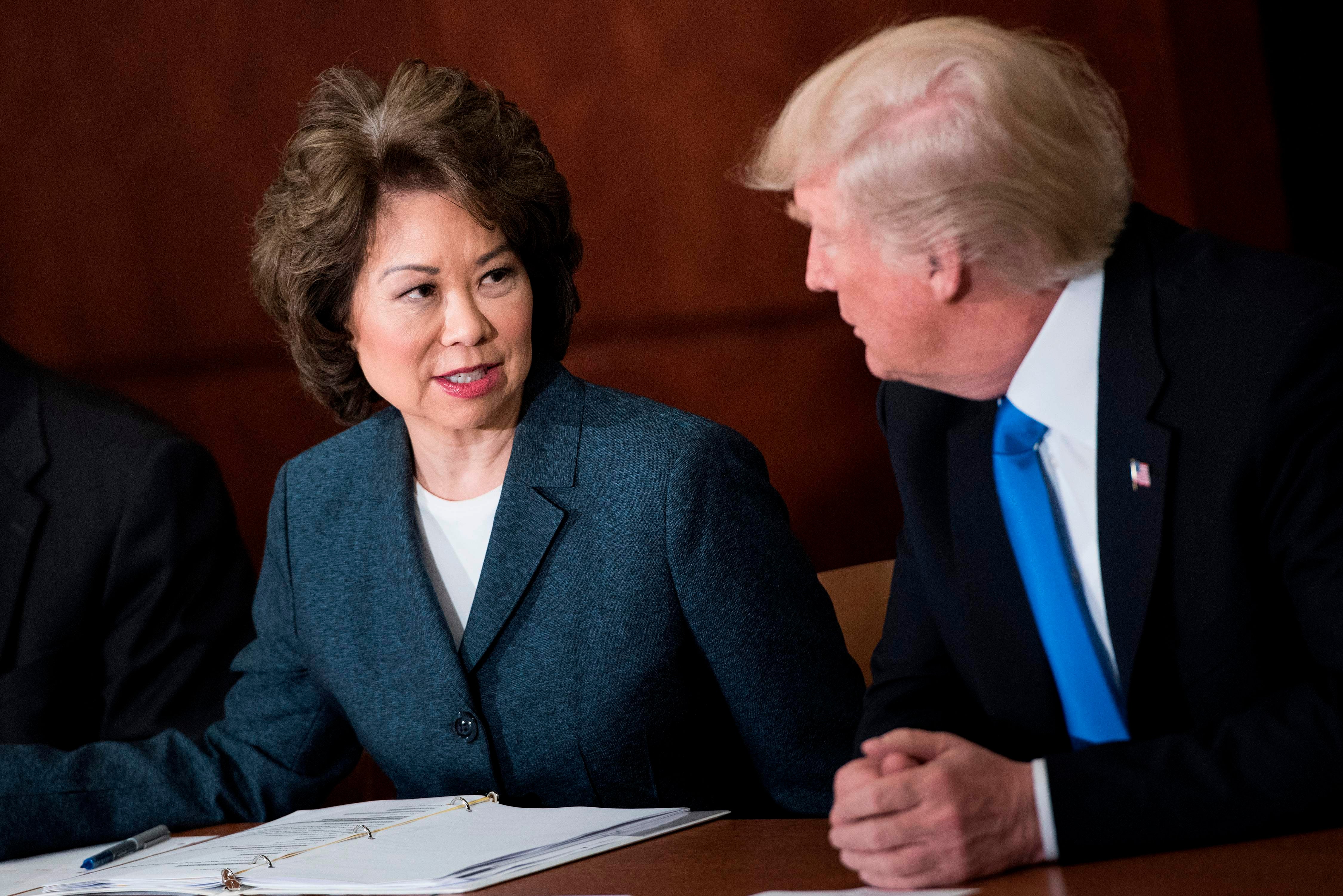
It was somehow a new low for a politician who leaned on racism against residents of Asian countries as well as his own fellow Americans like a crutch during the height of the Covid-19 pandemic, dubbing the virus the “Kung Flu” and “Chinavirus”.
That anger directed at China over Covid-19 had real consequences for not just Chinese-Americans but all Asian Americans. A study from the Center for the Study of Hate & Extremism found that hate crimes against Asian Americans jumped 145 per cent in more than a dozen of America’s biggest cities throughout 2020; separately, the Anti-Defamation League pointed to a shocking rise of hateful rhetoric directed at people with Asian ancestry across Twitter in the hours immediately following Mr Trump’s own Covid diagnosis that year.
The Independent has reached out to Mr Trump for comment.
To be clear, the Covid-19 pandemic wasn’t the only factor contributing to mistrust and hate being levelled against Asian Americans. The US’s continued economic and global political rivalry with China extends to many issues, from trade to the sovereignty of Taiwan and the treatment of Uyghur Muslims. FBI statistics indicate that hate crimes against Asian Americans have been rising steadily since 2015.
But with Donald Trump’s return, at least officially, to the national political stage many are rightfully wondering if a new wave of hate-inspired incidents against America’s various communities of Asian descent, as the Covid pandemic and Mr Trump’s rhetoric was repeatedly blamed for in 2020.
Calling the ex-president’s attacks a symptom of “his own insecurities”, Dr Russell Jeung of San Francisco State University told The Independent that many experts were “concerned that the continued mockery, the insulting behavior is a role model for other Americans to do the same, and will unleash another surge of racism against us”.
The way to prevent another wave of hate-related attacks, he explained, was to help children unlearn bigoted stereotypes while they are young, and confront adults committing such hateful behaviour in public.
“I think it’s everyone’s responsibility to name racism,” said Dr Jeung, founder of Stop AAPI Hate. “That’s the problem on the streets is that people don’t intervene when we’re getting attacked. And so it seems like society condones this type of behavior. And so unless, especially fellow Republicans call it out, then they’re simply condoning it, promoting it actually. It’s up to everyone to stop racism when they see it or else becomes the norm, which it definitely has.”

